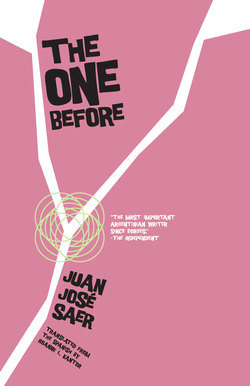Читать книгу The One Before - Juan José Saer - Страница 16
На сайте Литреса книга снята с продажи.
ОглавлениеA Historian’s Insomnia
A small silver cup of mate comes and goes from my worktable. Sometimes the last one goes cold on the pedestal. My study is a knot of cool semidarkness, fortified by books against the summer that sparkles behind the orange curtains. My greedy eye incessantly retraces daguerreotypes of full-grown men and oil paintings representing soundless, immobile battles. The life of those multitudes, has it been richer or more raucous than this life of mine, which fades away as my body atrophies within these four walls? Sometimes, a perfect, unexpected fragment unfurls and expands beneath my eyes, a report from San Martín, a letter, happy diamonds from an epoch of sun and blood. Mostly, however, there is nothing to do but copy documents from the archives and cobble together evidence that will exchange one glory for another on the overcrowded horizon of death. And most of all, the tension of ensuring that this nightmare that has fanned out behind me—and why do I say behind?—doesn’t evaporate and isn’t erased.
I work deep into the night before heading to bed. Whatever pretext serves to delay each night a little more. But at last there are no more excuses and I am undressing slowly, I am putting on my pajamas, and I am laying myself out next to the bulk of breathing heat that is the sleeping body of my wife. The procession begins immediately, the mute creaking of insomnia, interwoven with changing forms that assault me and never leave until daybreak. Almost always, it ends with increasingly wild disintegration, whose final phases I forget most of the time, or perhaps I’m already asleep, or perhaps I believe that I’m already asleep, or perhaps I’m absorbed in a thought of which I’m not conscious, but that nevertheless I believe I understand. Yet, despite everything, none of these is the worst. Some nights it’s not dreams that follow insomnia, but blind lucidity, an incandescent vigil, that is no sort of lucidity at all and a vigil for nothing. Having reached that point, I feel emptied of memories—I, for whom memory is the masculine arm that parts the waters and, at the same time, the turbulent river whose bottom keeps receding, even as one plunges deeper—and with nothing to think about. Then, in the lilac sky, the white pinpoint of the moon begins to rise slowly and sparkle against the metallic curtains.
